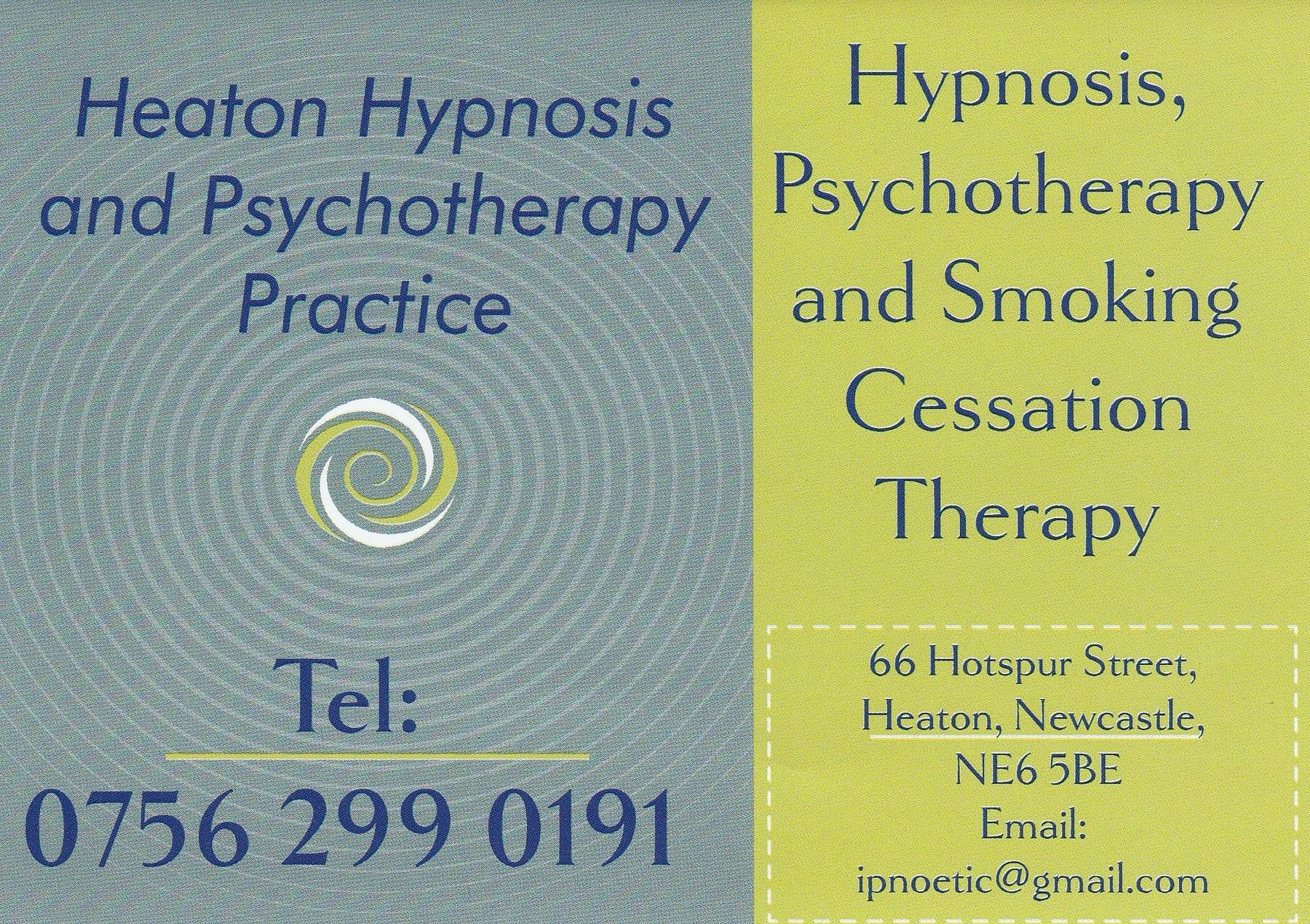When it comes to evidence-based counselling, there are a variety of techniques and therapies available to practitioners. One such therapy that has been gaining popularity in recent years is hypnotherapy. But does it really work? Can hypnosis truly unlock the deeper layers of the mind to facilitate healing and growth? In this blog post, we’ll explore the evidence behind hypnotherapy as a tool for effective counselling. So buckle up and get ready to delve into the world of hypnosis and uncover the truth about its potential benefits in evidence-based counselling.

Understanding Hypnotherapy: What It Is and How It Works
Hypnotherapy is a type of complementary therapy that involves inducing a trance-like state, also known as hypnosis, in order to encourage deep relaxation and focused concentration. During this state, the person is more open to suggestions and can access their subconscious mind. Hypnotherapy has been used for various purposes including pain management, anxiety disorders or trauma-related issues. It typically involves several sessions with a trained hypnotherapist, who will use verbal cues and guided imagery techniques to facilitate therapeutic change.
Although some people may be sceptical about hypnosis due to its portrayal in pop culture, it has become increasingly popular among those looking for alternative therapies. Scientific studies have shown that under specific conditions and with a qualified practitioner’s guidance, hypnotherapy can be an effective treatment option for certain issues such as smoking cessation or irritable bowel syndrome (IBS). However, it should not replace traditional medical care if needed; rather be seen as complementary support alongside other appropriate treatments.

Separating Fact from Fiction: Debunking Common Myths About Hypnotherapy
Hypnotherapy has long been shrouded in mystery and scepticism, with many myths perpetuated about its effectiveness and safety. One common myth is that hypnosis involves mind control or manipulation, but this couldn’t be further from the truth. In reality, hypnotherapy is a collaborative process between the therapist and client, where the individual remains in complete control of their thoughts and actions.
Another myth surrounding hypnotherapy is that it can erase memories or uncover repressed ones. While clients may experience enhanced recall during sessions, there’s no evidence to support the idea that hypnosis can uncover memories that were completely forgotten or erased.
Finally, some people believe that only certain types of individuals are susceptible to hypnosis – those who are gullible or easily hypnotized. However, research shows that virtually anyone can benefit from hypnotherapy regardless of personality type or suggestibility levels.
By debunking these common misconceptions about hypnotherapy and demystifying how it works as an effective mental health treatment tool becomes easier for clients to feel comfortable seeking out this option when necessary.

The Science Behind Hypnotherapy: Exploring the Research and Evidence
Hypnosis research is an evolving field, but recent studies have shown promising results for the effectiveness of hypnotherapy in treating various mental health conditions. A review of randomized controlled trials found that hypnotherapy was beneficial for reducing symptoms of anxiety, depression, and chronic pain.
One study showed that hypnosis can increase the efficacy of cognitive-behavioral therapy in treating anxiety disorders. Another study found that hypnotherapy helped alleviate symptoms in patients with irritable bowel syndrome.
Research also suggests that hypnosis affects brain activity, specifically increasing activity in certain areas related to attention and decreasing activity in areas related to self-consciousness. These changes may help individuals enter a more relaxed and receptive state during therapy sessions.
Although more research is needed to fully understand the mechanisms behind hypnotherapy’s effectiveness, current evidence supports its use as part of an evidence-based treatment plan for certain mental health conditions.
Real-Life Examples of Hypnotherapy’s Effectiveness in Therapy
Overcoming Trauma: A Case Study of Hypnotherapy’s Effectiveness
In a recent study, hypnotherapy was found to be an effective treatment for individuals dealing with trauma. One case involved a woman who had suffered from childhood abuse and developed anxiety and depression as a result. After just six sessions of hypnotherapy, the client reported feeling more in control of her emotions and experienced fewer panic attacks. The therapist used techniques such as regression therapy to help the client confront and process past traumas in a safe space. This case study highlights the potential benefits of incorporating hypnotherapy into evidence-based counselling practices for treating trauma-related disorders.
Breaking the Cycle: How Hypnotherapy Helped a Client with Addiction
One notable example of hypnotherapy’s effectiveness in therapy is its ability to help individuals break free from addiction. Research has shown that hypnotherapy can be highly effective in treating addiction by targeting the underlying psychological factors that contribute to addictive behaviors. One client struggling with alcoholism found relief through hypnotherapy, which helped them understand and address the root causes of their addiction. By accessing their subconscious mind and identifying negative patterns, they were able to reframe their thinking and develop healthier coping mechanisms. With continued practice, this individual was able to overcome their addiction and maintain long-term sobriety through the power of hypnotherapy.
Unpacking Anxiety and Depression: A Comparison of Traditional Counselling vs. Hypnotherapy
In a study comparing traditional counselling to hypnotherapy for treating anxiety and depression, hypnotherapy was found to be more effective in reducing symptoms. Participants who received hypnotherapy reported a significant decrease in anxiety and depression levels compared to those who received traditional counselling. Hypnotherapy also showed longer-lasting effects, with participants reporting sustained improvement even six months after treatment. This suggests that hypnotherapy can be a valuable tool in treating mental health issues and should be considered as part of a comprehensive treatment plan.
Tapping into the Subconscious Mind: Real-Life Examples of Successful Hypnotic Inductions in Therapy
Hypnotherapy has been shown to be effective in treating a variety of mental health issues, including anxiety and phobias. One real-life example involves a woman suffering from a fear of flying who was able to overcome her anxiety through hypnosis. Another success story involves a man with chronic pain who found relief after undergoing hypnotherapy sessions focused on pain management. In both cases, the hypnotic induction accessed the subconscious mind to address underlying issues contributing to their symptoms. These examples demonstrate how hypnotherapy can provide an innovative approach to traditional talk therapy methods and offer new avenues for healing and growth.

Finding a Trusted Practitioner: Tips for Choosing a Qualified Hypnotherapist
When seeking a hypnotherapist, it’s essential to find someone who is qualified and experienced. Checking their credentials is the first step in ensuring they’re trustworthy. Look for practitioners who have completed an accredited training program from reputable organizations like the American Society of Clinical Hypnosis or the National Board for Certified Clinical Hypnotherapists. The next step is to look at their experience and specialities. It’s important to choose someone who has experience working with issues similar to yours.
Another consideration is whether you feel comfortable with the practitioner during your initial consultation. A good hypnotherapist will take time to listen, answer questions, and explain how hypnotherapy can help with your specific concerns. They should also be transparent about their fees and not make outlandish promises.
In addition, don’t hesitate to ask for references or read online reviews from previous clients before committing to a practitioner. By taking these steps, you can find a trusted professional that will provide quality care tailored specifically towards your needs.

When to Consider Using Hypnotherapy as Part of Your Mental Health Treatment Plan
While hypnotherapy can be a powerful tool for some individuals, it is not always the best fit for everyone. If you are considering using hypnotherapy as part of your mental health treatment plan, it is important to consult with a qualified practitioner and discuss your specific needs and concerns.
One key factor in determining whether hypnotherapy may be helpful for you is the nature of your struggles or issues. Hypnosis has been found effective in treating a range of conditions such as anxiety disorders, phobias, insomnia, chronic pain, and addiction. However, it may not be recommended or effective for certain conditions such as psychosis or severe mental illness.
Another consideration when deciding on hypnotherapy is finding a qualified practitioner who understands evidence-based practices and has proper training and certifications. Look for practitioners who have advanced degrees in psychology or counseling along with specialized training in clinical hypnosis.
As with any type of therapy, it’s essential that you feel comfortable working with your therapist before embarking on any kind of treatment plan involving hypnosis. Take time to research potential practitioners thoroughly and ask questions before making an appointment.
In conclusion, hypnotherapy is a powerful tool that can be used to address a variety of mental health concerns. While there are certainly myths and misconceptions surrounding this form of therapy, the evidence and research suggest that it can be an effective addition to evidence-based counselling approaches. By finding a trusted practitioner who is qualified in hypnotherapy techniques, individuals may be able to unlock new perspectives and insights into their own mind, leading to greater well-being and improved quality of life. If you’re considering incorporating hypnotherapy into your own therapeutic journey, we encourage you to speak with your mental health provider or do some careful research before making any decisions. With proper guidance and support, however, hypnotherapy may offer significant benefits for those seeking healing, growth, and transformation.
FAQ
Who can benefit from hypnotherapy?
Anyone seeking help overcoming mental or physical challenges.
What is hypnotherapy and how does it work?
Hypnotherapy is a form of therapy that uses hypnosis to access the subconscious mind and change behaviour patterns.
How effective is hypnotherapy?
Hypnotherapy may be effective for some people, but results vary based on individual circumstances.
What are some common objections to hypnotherapy?
Some people may be sceptical of hypnotherapy or fear losing control during a session.
How can I find a qualified hypnotherapist?
Look for a licensed professional with experience in your specific area of need.
Is hypnotherapy safe?
Yes, hypnotherapy is generally considered safe when practised by a qualified professional.
